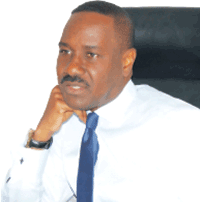That Nigeria has a leadership problem is no longer in doubt. Only a sycophant will argue that most of our problems in this country are not directly or indirectly related to a leadership crisis. We have tried various systems of government (the parliamentary and the presidential). The use of the hybrid French system was even suggested, but we never got to try that out. We have also experimented with several kinds of electoral rules and systems.
Democracy is defined as a system of government by all the people of a country, usually through representatives whom they elect and thought of as allowing freedom of speech, religion and political opinion. However, even within the context of that definition, we know that there are restrictions, constraints, manipulations, alterations and variations. These exist not only in ‘younger’ democracies such as ours, but even in advanced democracies such as the United States (U.S.), United Kingdom, India, Canada, France and Israel, just to mention a few.
In India, not less than three serving prime ministers have been assassinated in the course of state duties by those opposed to them or their style of government. Not less than two U.S. presidents have been impeached during the course of their terms. Israel has had not less than five different prime ministers in the last 10 years; an average of two years per minister. A Prime Minister (PM) has also been assassinated in that country. All of these illustrate the fact that there is no perfect democracy. There are imperfections here and there within each country’s system, which each particular country has tried to attend to through the channel of their different state instruments, the primary one being the constitution.
In the year 2000 in the U.S. (which many see around the world as the most stable of all world democracies) during the election of its 43rd president, the whole world witnessed what turned out to be one of the most controversial of all US elections live on television. While the former U.S. Vice-President, Al Gore, won the popular votes, his opponent for the coveted seat of the world’s most powerful man, George Bush (former Governor of the State of Texas), won through the Electoral College by a very slim margin in the State of Florida where his younger brother was holding fort as the governor. It was the results of that particular state that eventually decided the winner of that election. It was in that same state that results were delayed. Notwithstanding the glaring irregularities of that election, that, however, did not make the loser, Al Gore, to call for mass action, violent protests, civil disobedience, interim government or military intervention.
Nigeria, since Independence, has undergone at least seven sets of elections, some real and some spurious. There were the 1964 elections that led to what has now become known as the ‘Wild, Wild West’ in the then Western Region of the country. These same elections also set the stage for the eventual military putsch and the civil war. Then we had the 1979 elections and the innocuous two-third of 19 states that was pursued up to the Supreme Court.
It is necessary to point out here that Obafemi Awolowo, the loser of that particular election, pursued constitutional means to seek redress, and his loss did not stop him from re-contesting in the 1983 elections in which we had the infamous ‘Wetie’, again in the Western part of the country.
The 1993 elections that followed have so far been adjudged the fairest and freest that this country has ever witnessed. The winner of that election won massively in both the North and the South, breaking religious and ethnic barriers. The 1997 elections with the ‘five leprous fingers of one hand’ as parties have aptly demonstrated the power of the people in a democracy. The boycott of that election denied it the legitimacy, which the late military dictator, Sani Abacha, longed for. Then finally we have had the more recent 1999, 2003, 2007 and 2011 elections.
Through all of these exercises, Nigerian politicians and the ruling class, both real and assumed, practising democrats and ‘converted’ ones do not seem to have learnt the rules of engagement of elections and democracy. Most of the actors have been around for long, some as far back as 1959, some far back as 1979.




